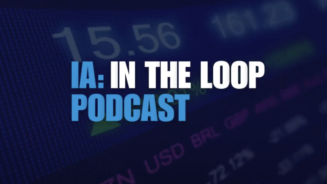Launched in March 1988, the EdenTree Amity UK Fund is one of the oldest ESG funds in the UK, and Sue Round is one of the country’s longest serving fund managers.
Despite her long tenure, Round admits she landed her first job in fund management by accident having originally wanted to become a fashion buyer in retail.
And as far as being a woman in the financial services industry back then, she says there were actually two women at the investment trust management house she joined in her first role as an office junior.
“I never felt I was coming into a completely male dominated industry, until later on when I discovered that all the people who worked on the operation side were men. It was not a single woman anywhere else,” she laughs. “I didn’t really know what I was coming into, but I found it such an interesting and varied industry.”
But the greatest change today is not about gender, she says, it has more to do with technology and the speed at which we can gain information.
“Access to information is transformed now compared to how it used to be. Everything has speeded up,” she says. When Round joined, fund information was printed published much less frequently.
She adds: “One of my jobs was actually to file all of these daily updates, they used to come around in an envelope, with yellow updates and company results, dividend announcements, things like that. When you have a piece of paper in your hand, you actually look at the small print”.
EdenTree – until last June known as Ecclesiastical Investment Management – has £2.4bn under management and runs six Amity-screened funds of which the £137m ($170bn, €152bn) Amity UK is the flagship and Round’s self-confessed “baby”. The range also includes funds with an international, US and Asia focus, among others.
At EdenTree all 30 employees sit on the same floor. The flat structure and lack of barriers help the organisation, in Round’s view. “We can be much more agile; the sales guy can wander over and talk to one of the fund managers. There aren’t barriers in the way that I suspect you get in other organisations.”
Since the firm launched its first ESG fund in 1988, many of the screening filters that Round was considering at the time have since moved on considerably.





